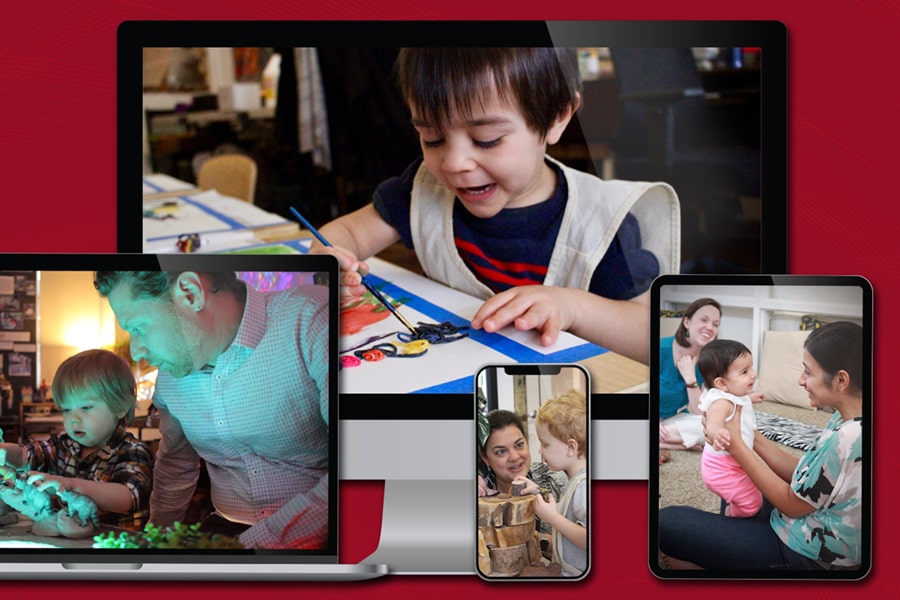![image of alumna Jennifer Gooch wearing one of her handmade masks]()
Alumna Forms Operation Face Mask Pittsburgh
School of Art alumna Jenn Gooch began seeing reports about shortages of face masks and decided she’d sew a few to help out some neighbors in need. From those first few masks, Gooch formed Operation Face Mask Pittsburgh, a well-organized team of volunteers who cut, sew and deliver masks, as well as provide education on proper mask wear and care, to many of Pittsburgh’s in-need but overlooked populations.
“I made a couple of tutorials on how to make masks and that exploded into me both making masks, as well as doing the material research to create masks that were washable and reusable,” Gooch said.
Operation Face Mask Pittsburgh is now run by a board of seven volunteers who coordinate mask fabrication, material donations, requests and deliveries, along with other logistics. Around 50 volunteers make the masks and drive them to those in need.
Find out more.
Emergency Fund to Assist Students with Expenses Related to COVID-19
The Tartan Emergency Support Fund has been established through the generosity of alumni, parents, friends of the university and student organizations to provide enrolled CMU undergraduate and graduate students with emergency funds to assist with unforeseeable expenses related to COVID-19 pandemic disruptions. The purpose of this fund is to cover unexpected circumstances needing immediate assistance, such as moving expenses, rent, food, medication, and other personal health and safety needs that occur during the spring term (through mid-May 2020). The Tartan Emergency Support fund does not require repayment; however, students receiving these funds are responsible for any potential tax implications. This fund supplements the existing Emergency Student Loan (ESL) program administered by the Office of the Dean of Students.
Both of these funding options will utilize the existing ESL form to receive and process requests. To apply, call the Office of the Dean of Students at 412-268-2075 to speak with a staff member and complete the online ESL application noting any COVID-19 specific impact. Summer 2020 funds may be available starting in May.
For those interested in supporting student needs through the fund, gifts are being accepted.
Grad Student Week Puts Spotlight on Adams, Aggarwal
In honor of Graduate and Professional Student Appreciation Week, Carnegie Mellon has named Alexis Adams and Surya Aggarwal as this year’s Graduate Student Teaching and Graduate Student Service Award winners, respectively.
![portrait of Alexis Adams]() Adams, a Ph.D. candidate in Second Language Acquisition in the Department of Modern Languages, has taught courses in the English and Modern Language departments at the Pittsburgh campus, as well as in the Summer College Preview Program at Carnegie Mellon in Qatar. As an instructor and researcher, she values reflection and strives to create an inclusive learning environment for students. In particular, she focuses on creating learning opportunities during class discussions to support students’ language and content skills.
Adams, a Ph.D. candidate in Second Language Acquisition in the Department of Modern Languages, has taught courses in the English and Modern Language departments at the Pittsburgh campus, as well as in the Summer College Preview Program at Carnegie Mellon in Qatar. As an instructor and researcher, she values reflection and strives to create an inclusive learning environment for students. In particular, she focuses on creating learning opportunities during class discussions to support students’ language and content skills.
![portrait of Surya Aggarwal]() Aggarwal, a Ph.D. candidate in the Department of Biological Sciences, has served as president of CMU’s Graduate Student Assembly, fostering efforts to benefit both graduate and undergraduate students. He fostered partnerships with university stakeholders to launch an on-campus legal consultation program and was involved with numerous other GSA initiatives including assessing the mentorship climate and providing childcare support for graduate students.
Aggarwal, a Ph.D. candidate in the Department of Biological Sciences, has served as president of CMU’s Graduate Student Assembly, fostering efforts to benefit both graduate and undergraduate students. He fostered partnerships with university stakeholders to launch an on-campus legal consultation program and was involved with numerous other GSA initiatives including assessing the mentorship climate and providing childcare support for graduate students.
Find out more about Adams and Aggarwal.
School of Music Launches Play-In-Place
The School of Music has created Play-In-Place, a new video series showcasing the talented students and faculty of the school performing in their living rooms, porches, offices, back yards, or wherever they are sheltering in place.
In the first installment of Play–In–Place, vocal performance majors Alyssa Vieau and Will Torres created this moving version of "Stay Awake" from Mary Poppins, arranged by William Torres, Jr. — while quarantined 500 miles apart.
Watch, listen and enjoy.
HR Policy Enhancements Support Staff During Pandemic
President Farnam Jahanian has announced several enhancements to CMU policies in Human Resources that are designed to support university staff during this unprecedented time. These policies allow all CMU staff employees the opportunity to earn their full compensation through May 31, 2020.
Enhancements include the creation of an Alternative Work Marketplace for Remote Assignments for employees whose jobs do not fully lend themselves to remote work, an option for the university to recognize up to 10 days of community service and/or staff professional development, additional PTO options and the ability to choose a reduced work schedule with reduced pay for up to two months.
“Thank you all for your continued passion for, and dedication to, Carnegie Mellon, and especially for your hard work and flexibility during the past few weeks,” Jahanian said in an email to staff and faculty. “As I have said on multiple occasions, staff are a vital part of this institution who help us to deliver on CMU’s extraordinary potential. I am truly grateful for all of your efforts as we get through these challenges together.”
Read President Jahanian’s message to staff and faculty.
Volleyball Team Video Goes Viral
Carnegie Mellon’s volleyball team had a little fun staying connected at a distance by creating a video on its TikTok social media account. Thanks to some clever video editing, the Tartans seem to be setting and hitting the ball back and forth to each other. Shared on CMU’s main Facebook page, the video has reached nearly 1 million people, and has garnered more than 530,000 views, almost 40,000 engagements and more than 35,000 clicks. Check it out.
CMU Pantry Accepting Donations for Student Shoppers
The CMU Pantry is accepting donations to keep the pantry stocked with a healthy variety of food for our student shoppers. In addition to non-perishable foods, donations of hygiene products and cleaning supplies also are appreciated. If you would like to donate physical items, a time can be arranged when a staff member can meet you at the pantry to collect the items.
If you would like to make a monetary donation, you can do so by following these steps:
- Visit the CMU Giving webpage.
- Click “Give Now”
- Click “Search All Funds”
- Search for the “Student Food Insecurity Fund” – any money donated to this fund will directly benefit student food insecurity initiatives on campus, including the CMU Pantry.
The CMU Pantry thanks you for your support.
Vote for Your Staff Council Divisional Rep
Voting for Staff Council Divisional Representatives for the 2020-2022 term ends Friday, April 10.
Visit the Staff Council website to learn about the candidates in your division, and use the unique link to your ballot that was in your Staff Council email dated April 1. Thanks for voting!
Journal Features CIRP Grad Students
The seventh edition of the CIRP Journal, sponsored by Carnegie Mellon’s Center for International Relations and Politics (CIRP), features the abridged theses of its six master’s degree students, who have a broad range of specializations and interests. All of the articles loosely relate to how societies are governed, whether it be through analysis of legal interpretations, the effects of different variables on democracies, or changing cybersecurity policy.
Students featured are Kellen Carleton, Ian Asenjo, Raaga Kalva, Michael Gormley, Colin Tait and Jacqueline Puschmann.
Swartz Center Seeks Applicants for Innovation Fellows Program
The Swartz Center for Entrepreneurship is seeking applications for its 2020 Innovation Fellows program. Innovation Fellows is a year-long entrepreneurial program offered to graduate students, postdoctoral fellows, and young faculty working with faculty investigators on university research. The goal of the program is to support researchers in exploring the potential for creating a successful company based on their technology.
Along with cohort-based educational workshops and expert one-on-one mentoring, Innovation Fellows will receive a $50K contribution from the Swartz Center, with a required $50K match from another source, to assist them in the process of commercializing university research.
Further details on the program and eligibility can be found at the Swartz Center website. Questions can be directed to Melanie Simko at msimko@andrew.cmu.edu. The deadline to apply is Monday, April 27.
Gelfand Center Seeks Students for Educational Outreach Awards
Each year the Gelfand Center recognizes three students who have made a commitment to sharing their knowledge, talents, skills and time to make a difference in the lives of children in the community. Awardees will each earn a $250 prize! This is a self-nomination process, with letters of support provided by on-campus or community partners. Click for self-nomination form or email GelfandCenter@andrew.cmu.edu for information. All nomination materials are due by Friday, April 17.
Who’s New at CMU?
Carnegie Mellon welcomes the following new staff members.
- Rajanie Prabha, Machine Learning Research Scientist, Pittsburgh Supercomputing Center;
- Anthony Basso, Laborer I, FMS Operations;
- Dana Vietmeier, Finance and Research Administrator, Mechanical Engineering Department;
- Jim Piekutowski, Learning and Development Trainer, Office of Human Resources; and
- Colin Brown, Executive Director, Heinz College Development.
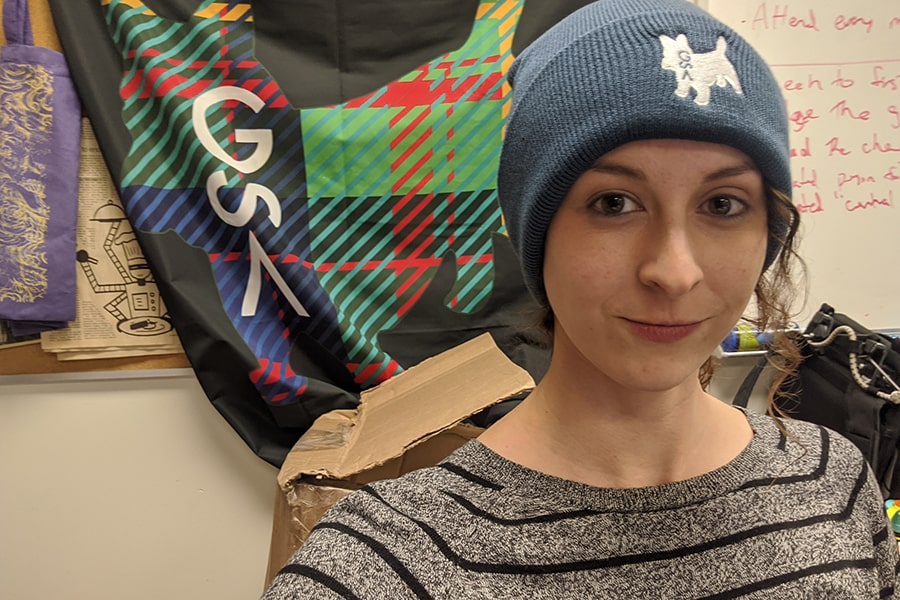
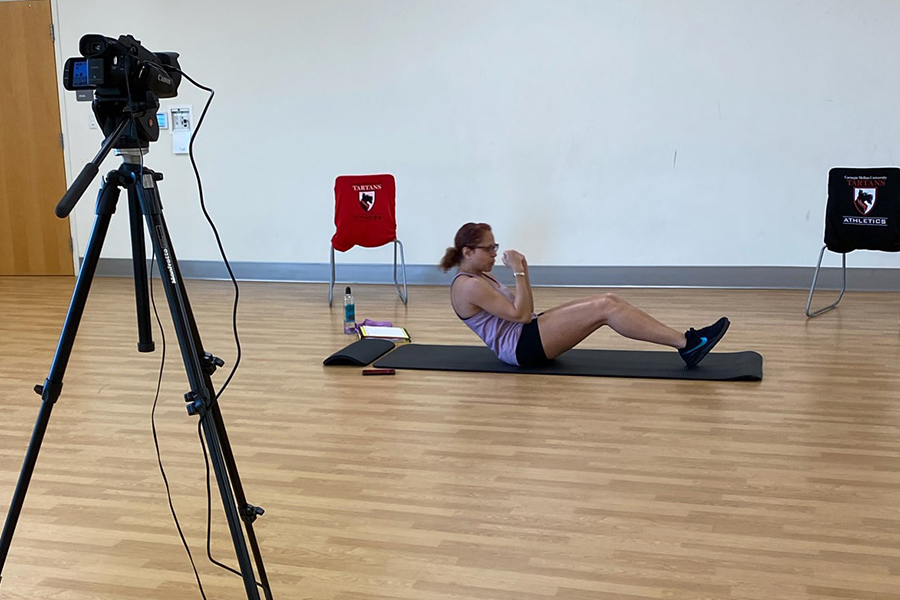

 Adams, a Ph.D. candidate in Second Language Acquisition in the
Adams, a Ph.D. candidate in Second Language Acquisition in the  Aggarwal, a Ph.D. candidate in the
Aggarwal, a Ph.D. candidate in the 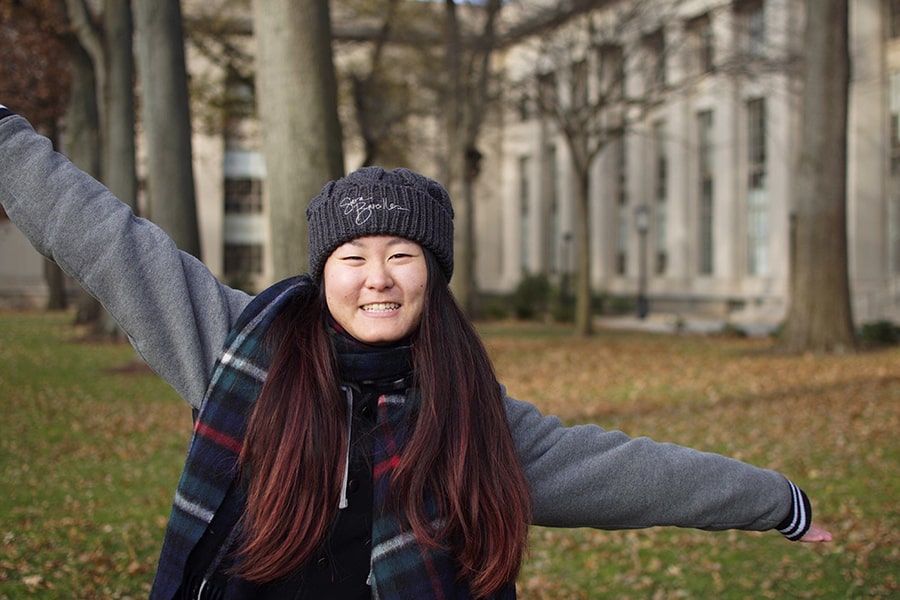
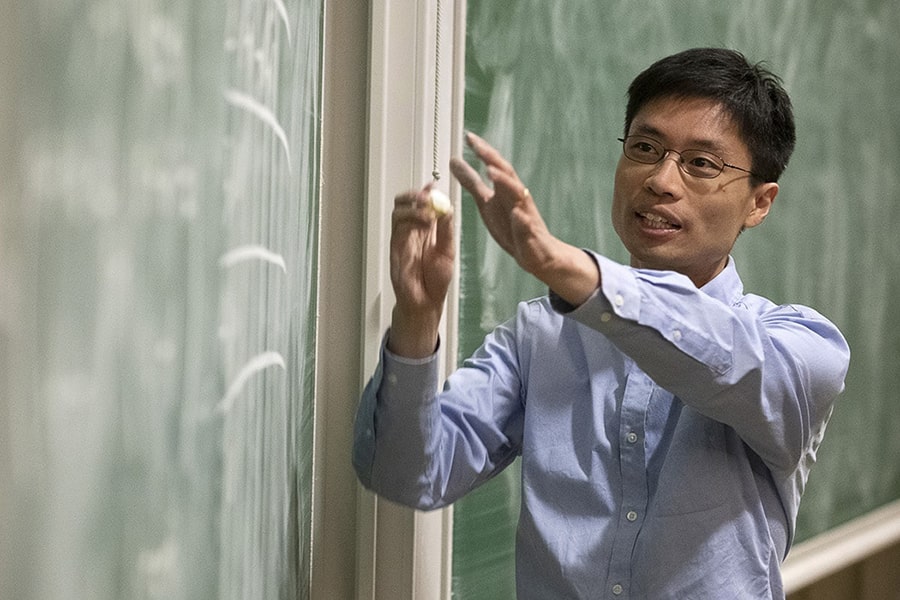
 Taylor, an assistant professor of mechanical engineering, will use the grant to support her research on nanostructures made using an artificially synthesized DNA-mimicking polymer. She will study the structure and formation of these novel nanostructures made using programmable gamma peptide nucleic acid (gammaPNA)-based materials. In particular, she will be studying the effects of different “weaving” patterns, chemical modifications and organic solvent mixtures as she seeks to learn more about peptide nucleic acid self-assembly.
Taylor, an assistant professor of mechanical engineering, will use the grant to support her research on nanostructures made using an artificially synthesized DNA-mimicking polymer. She will study the structure and formation of these novel nanostructures made using programmable gamma peptide nucleic acid (gammaPNA)-based materials. In particular, she will be studying the effects of different “weaving” patterns, chemical modifications and organic solvent mixtures as she seeks to learn more about peptide nucleic acid self-assembly. Whitefoot, an assistant professor of mechanical engineering and engineering and public policy, studies engineering design and economics to understand product design in the context of markets and regulations. The award will support her research on product differentiation. This work will better understand the optimal variety of product designs under different market and policy conditions. It will also develop computational models to inform product design strategies.
Whitefoot, an assistant professor of mechanical engineering and engineering and public policy, studies engineering design and economics to understand product design in the context of markets and regulations. The award will support her research on product differentiation. This work will better understand the optimal variety of product designs under different market and policy conditions. It will also develop computational models to inform product design strategies.
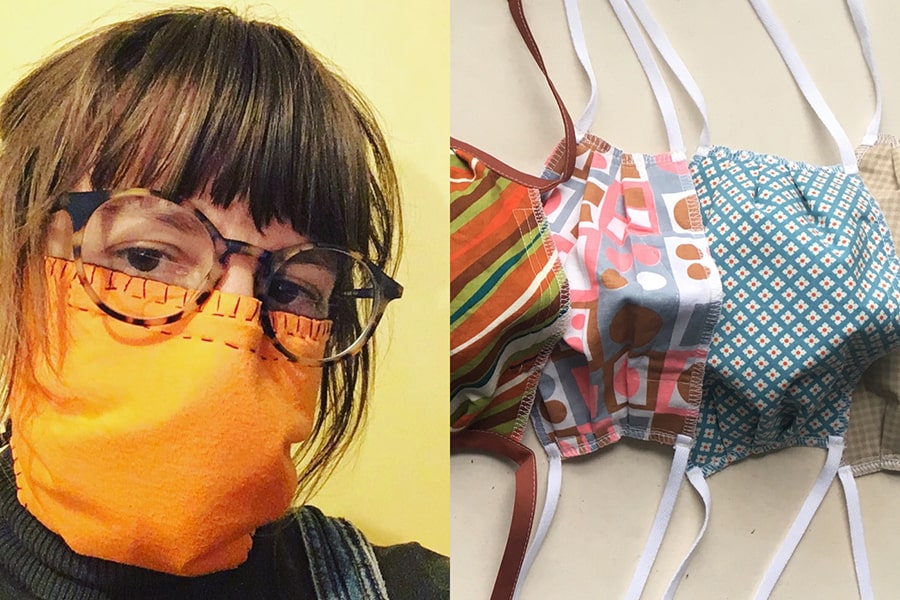


 Nancy Hags has made more than 150 face masks for essential staff at CMU.
Nancy Hags has made more than 150 face masks for essential staff at CMU.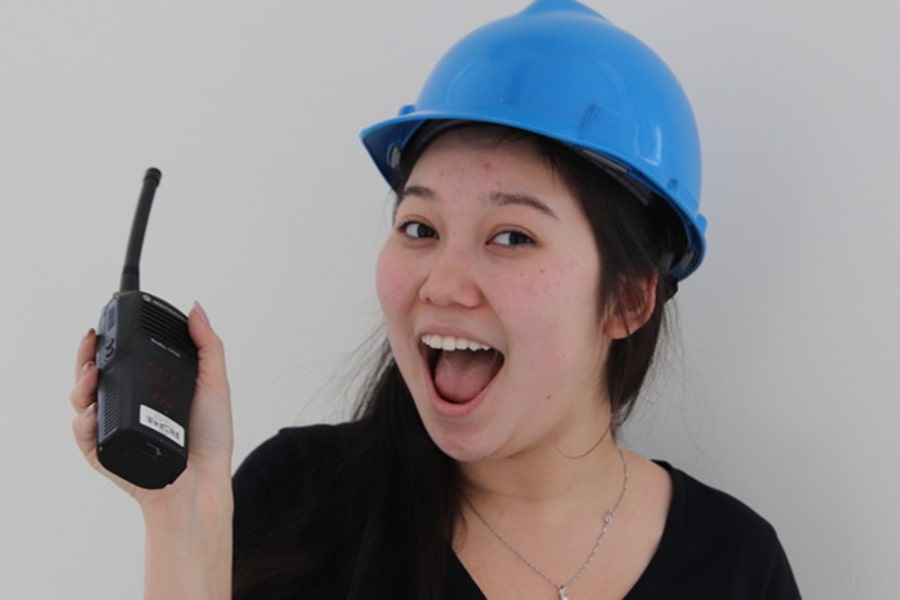
 Yerzhanova will be the first woman in her family to graduate from an American university. “I know my parents are proud of me and what I have accomplished,” she said.
Yerzhanova will be the first woman in her family to graduate from an American university. “I know my parents are proud of me and what I have accomplished,” she said.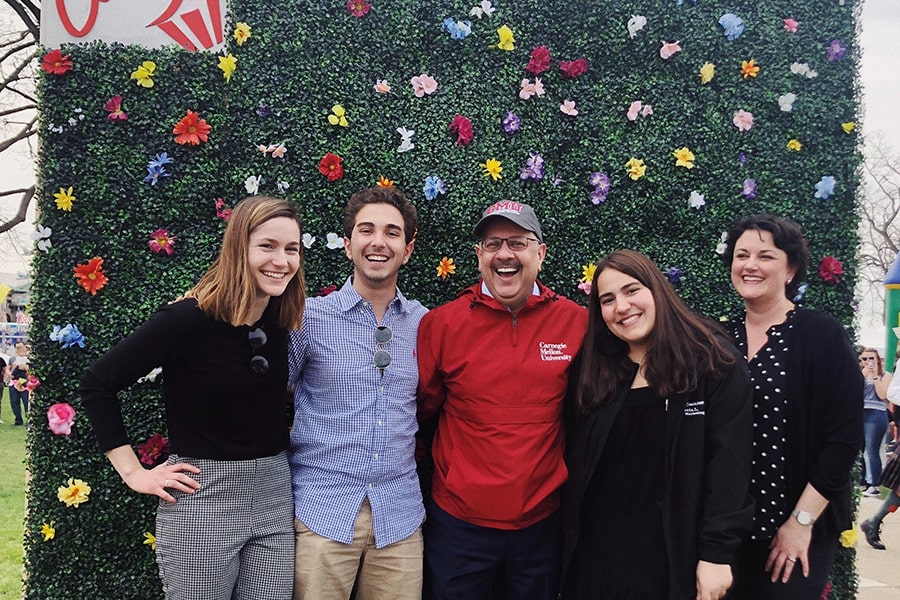
 Junior Victoria Lugo has helped to make plans for Spring Carnival weekend from her home in Puerto Rico.
Junior Victoria Lugo has helped to make plans for Spring Carnival weekend from her home in Puerto Rico. Students and staff give the "thumbs up" at last year's Spring Carnival awards ceremony. In the top row are this year's co-chairs VIctoria Lugo (fourth from right) and Renata Yerzhanova (second from right). In the front row are SLICE coordinators Kaycee Palko (third from left) and Andrew Greenwald (third from right).
Students and staff give the "thumbs up" at last year's Spring Carnival awards ceremony. In the top row are this year's co-chairs VIctoria Lugo (fourth from right) and Renata Yerzhanova (second from right). In the front row are SLICE coordinators Kaycee Palko (third from left) and Andrew Greenwald (third from right). 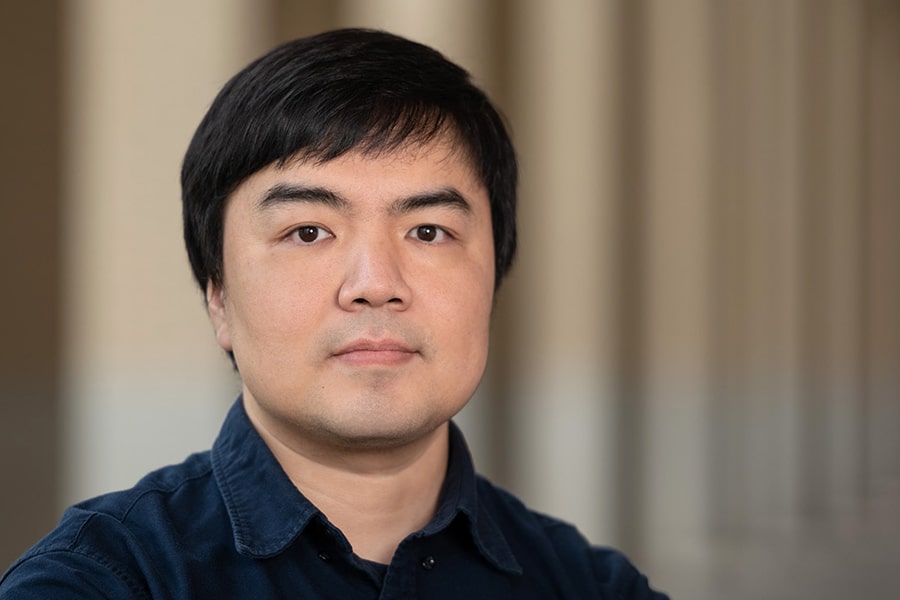






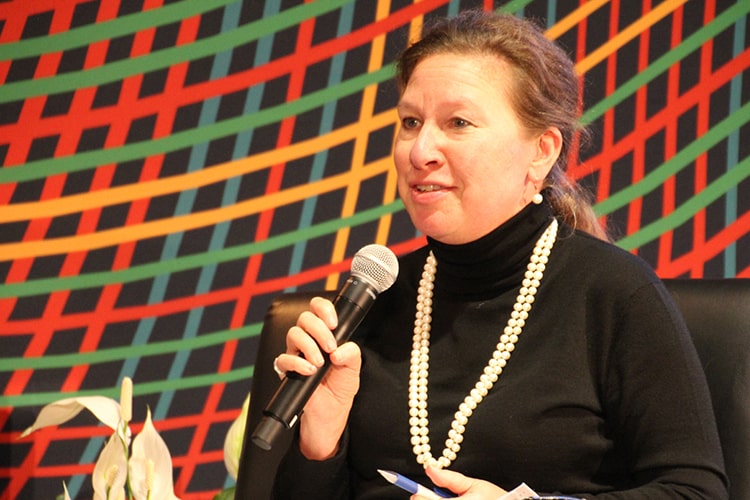
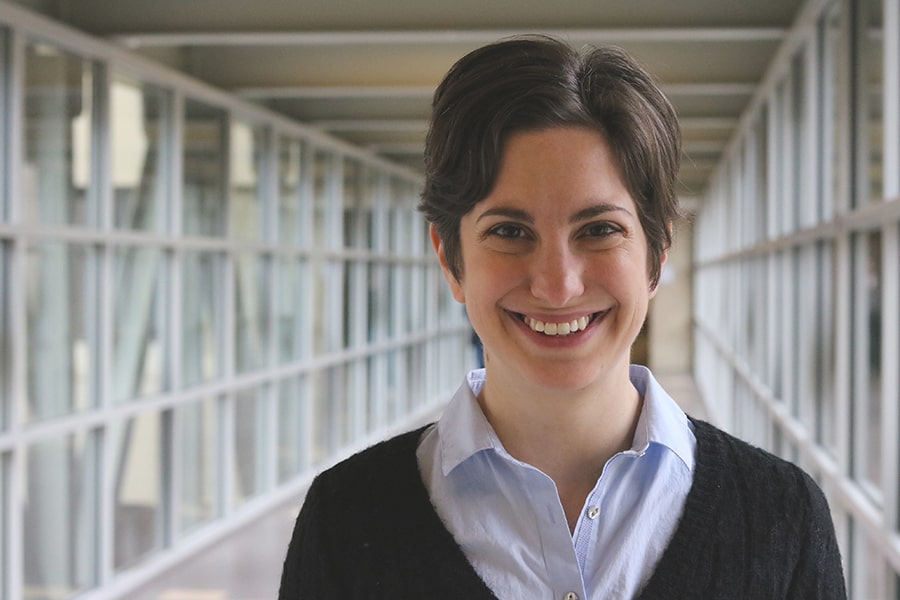
 Majidi won in the advanced manufacturing and materials category. Majidi's research focuses on soft machines. Unlike traditional machines with heavy circuits and gears, soft machines are made from flexible materials that are suitable for human interaction. Pioneering research done in his
Majidi won in the advanced manufacturing and materials category. Majidi's research focuses on soft machines. Unlike traditional machines with heavy circuits and gears, soft machines are made from flexible materials that are suitable for human interaction. Pioneering research done in his  Sullivan, associate director of CMU's Institute for Green Science, won in the environmental category. Sullivan is a leading researcher in atmospheric chemistry. As the first scientist in North America to make use of optical tweezer technology to study aerosol particles suspended in air, he has pioneered research into how these particles travel and evolve in the atmosphere, and how they affect the formation of clouds that have significant impacts on Earth's climate.
Sullivan, associate director of CMU's Institute for Green Science, won in the environmental category. Sullivan is a leading researcher in atmospheric chemistry. As the first scientist in North America to make use of optical tweezer technology to study aerosol particles suspended in air, he has pioneered research into how these particles travel and evolve in the atmosphere, and how they affect the formation of clouds that have significant impacts on Earth's climate. 


